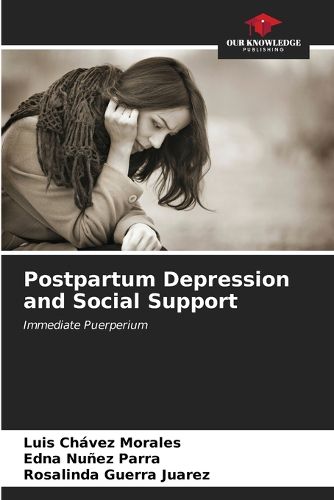Readings Newsletter
Become a Readings Member to make your shopping experience even easier.
Sign in or sign up for free!
You’re not far away from qualifying for FREE standard shipping within Australia
You’ve qualified for FREE standard shipping within Australia
The cart is loading…






Postpartum depression exists! It is an affective disorder that can last for weeks or months and affects one in six postpartum women. Unfortunately, nowadays few women and their families seek support or are unable to express their feelings. After childbirth, women experience biological, physical, emotional and social changes, leading to postpartum depression. Postpartum depression presents various symptoms such as depression, persistent sadness or crying, decreased interest or ability to enjoy activities, among others. It is important to detect patients who require pharmacological and psychological treatment to reduce the risks of morbidity for both mother and child, and nursing professionals are undoubtedly those who have the most contact with postpartum women to detect the appearance of depressive symptoms in them. "The birth of a baby is a cause for joy, or so it should be... But for some women, joy is not an option" (Tatano, 2006).
$9.00 standard shipping within Australia
FREE standard shipping within Australia for orders over $100.00
Express & International shipping calculated at checkout
Postpartum depression exists! It is an affective disorder that can last for weeks or months and affects one in six postpartum women. Unfortunately, nowadays few women and their families seek support or are unable to express their feelings. After childbirth, women experience biological, physical, emotional and social changes, leading to postpartum depression. Postpartum depression presents various symptoms such as depression, persistent sadness or crying, decreased interest or ability to enjoy activities, among others. It is important to detect patients who require pharmacological and psychological treatment to reduce the risks of morbidity for both mother and child, and nursing professionals are undoubtedly those who have the most contact with postpartum women to detect the appearance of depressive symptoms in them. "The birth of a baby is a cause for joy, or so it should be... But for some women, joy is not an option" (Tatano, 2006).